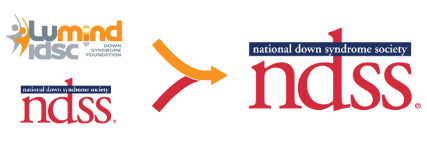May 11, 2021 (Burlington, MA) – LuMind IDSC Foundation today announced a new collaboration with Merck, known as MSD outside the United States and Canada, to initiate several sub-studies in the ongoing Longitudinal Investigation for the Enhancement of Down Syndrome Research (LIFE-DSR) cohort. LIFE-DSR is a longitudinal study of 270 adults with Down syndrome, their medical histories, blood samples, and neuropsychological testing data.
The new, multi-million dollar collaboration with Merck enables LuMind IDSC to facilitate additional biomarker research that includes a tau PET imaging sub-study and the expansion of fluid biomarker research to include cerebrospinal fluid and plasma biomarkers.
As life expectancy for adults with Down syndrome has increased from 25 years in the 1980s to well into their 60s today, many are now facing the onset of Alzheimer’s disease (AD), but at a much higher rate than the general population. According to a study published in the 2017 Journal of Intellectual Disabilities, it is estimated the lifetime risk of Down syndrome associated Alzheimer’s Diseases (DS-AD) is greater than 90%. Another study in the Journal of the American Medical Association reports that Alzheimer’s disease is the leading cause of death for adults with Down syndrome.
LIFE-DSR seeks to investigate the high prevalence of DS-AD, and what therapies and treatments can be developed to prevent it.
“In spite of the clear crisis facing adults with Down syndrome, industry interest has been stymied by a general lack of research for the sake of discovery in the DS-AD field,” said Hampus Hillerstrom, CEO of LuMind IDSC Foundation. “Our new collaboration with Merck will fuel the acceleration of research in this under-served area.”
“Collaboration is critical to fueling innovation as we strive to address significant medical needs, including for patients with DS-AD,” said Dr. Matthew Kennedy, Executive Director, Neuroscience, Merck Research Laboratories. “The prevalence of Alzheimer’s disease among people with Down syndrome is clear and we look forward to working with the LuMind IDSC Foundation and lay important groundwork to potentially support new clinical trials for DS-AD.”
“We are very enthusiastic about collaborating with such a highly experienced company such as Merck,” Hillerstrom said. “This partnership will bring deep expertise and support to a field that is quickly growing in momentum and that urgently needs solutions to the looming shadows of Alzheimer’s and dementia facing adults with Down syndrome.”
The Merck/LuMind IDSC project is the first of the LuMind IDSC Research Consortium, a collaboration of nonprofit and life science companies working to accelerate Down syndrome research toward significant medical and therapeutic outcomes.
About LuMind IDSC Foundation:
The LuMind IDSC Foundation (LuMind IDSC) envisions a world where every person with Down syndrome thrives with improved health, independence, and opportunities to reach his or her fullest potential. LuMind IDSC accelerates research to increase availability of therapeutic, diagnostic, and medical care options and empowers the largest online community of individuals with Down syndrome and their families with education, resources, connections, and support. Since 2004, LuMind IDSC has raised a total of $85M in funding for Down syndrome research to prevent Alzheimer’s onset, improve cognition, develop gene therapies, and advance understanding. For more information, visit www.LuMindIDSC.org.
LuMind IDSC is supporting the acceleration of treatments in Down Syndrome associated Alzheimer’s disease through targeted research efforts enabling the testing in the DS population of the best Alzheimer’s drug candidates in development for the general Alzheimer’s population. We are also committed to connecting individuals with Down syndrome and their families to resources, expertise, education, and to each other online and in person. LuMind IDSC partners regularly with pharmaceutical, medical device, diagnostic and tech companies to find solutions to the Down syndrome community’s most urgent medical and therapeutic needs.
For questions, contact:
Kate O’Neill, LuMind IDSC, [email protected], 781-825-1303
